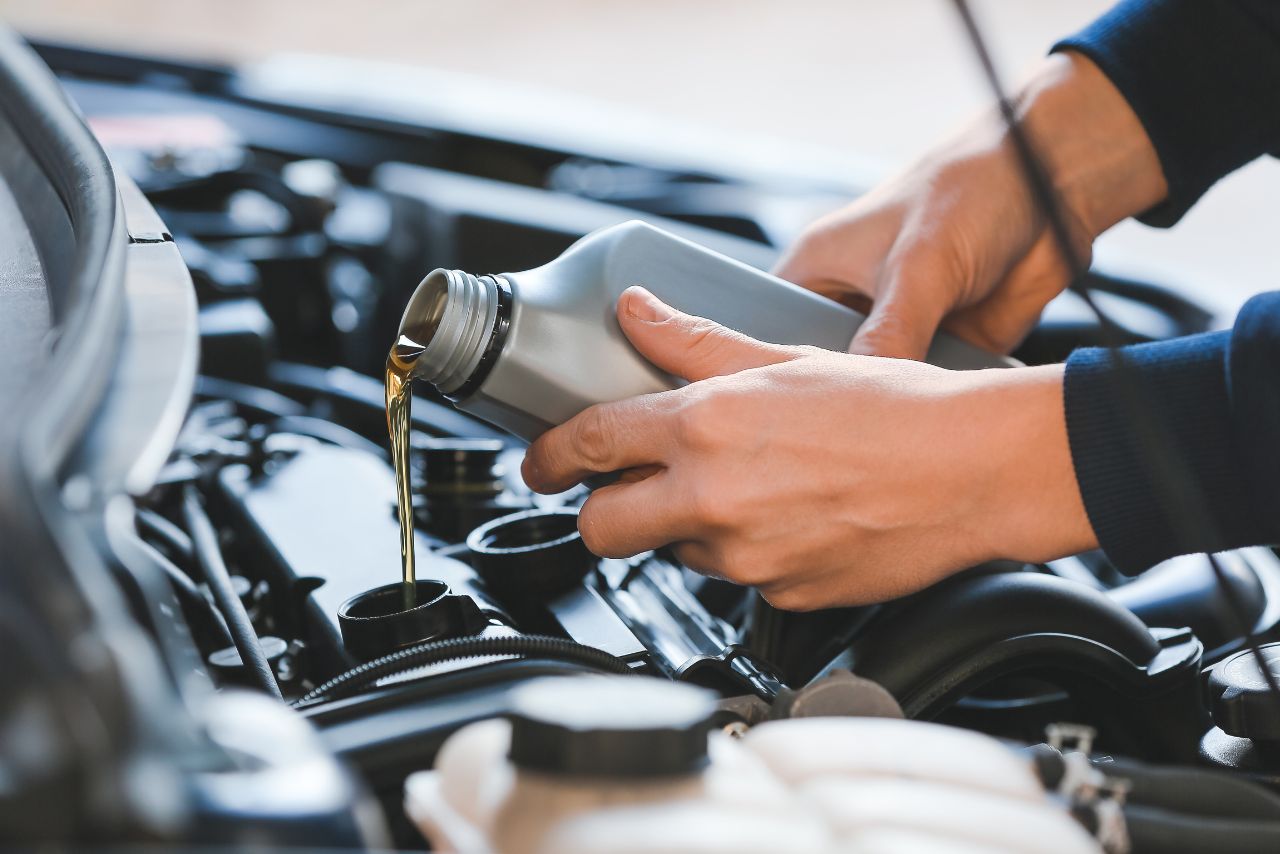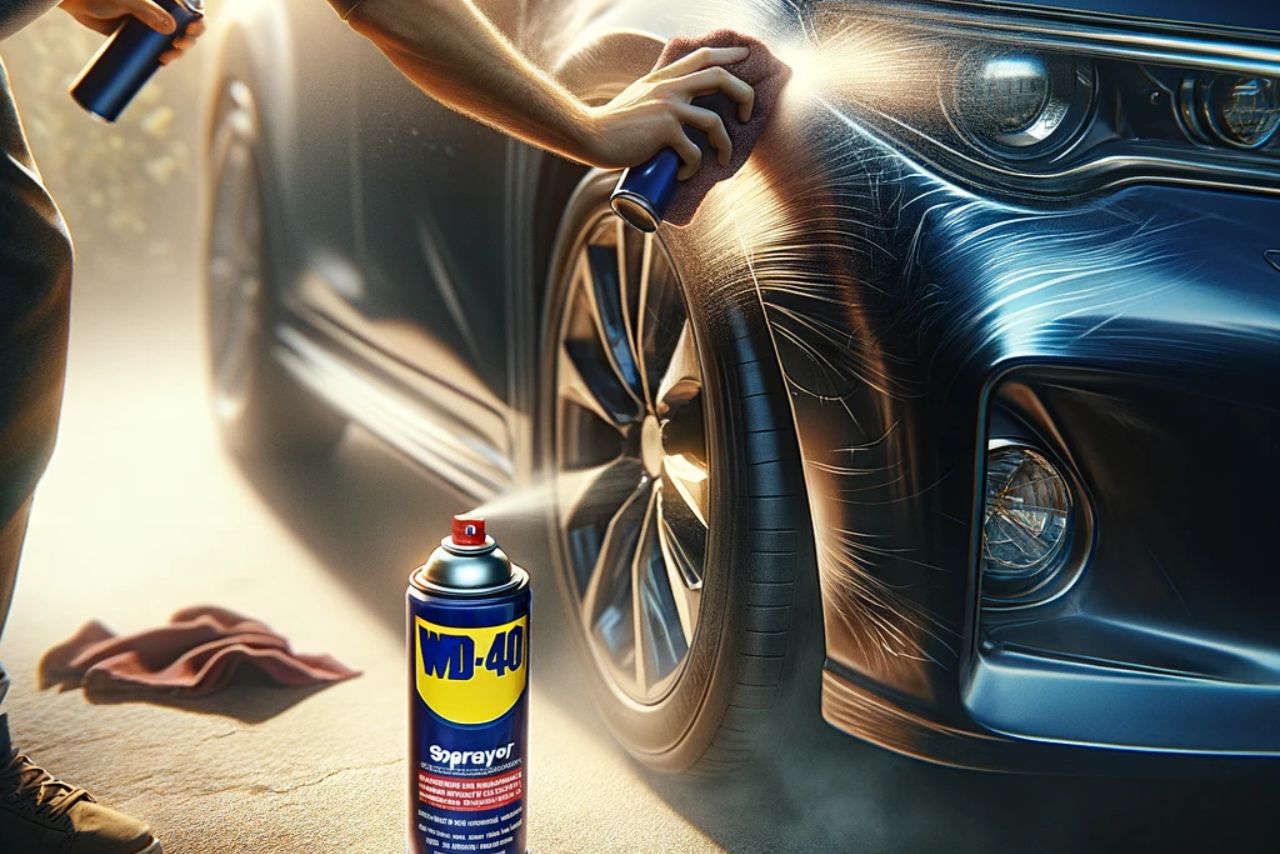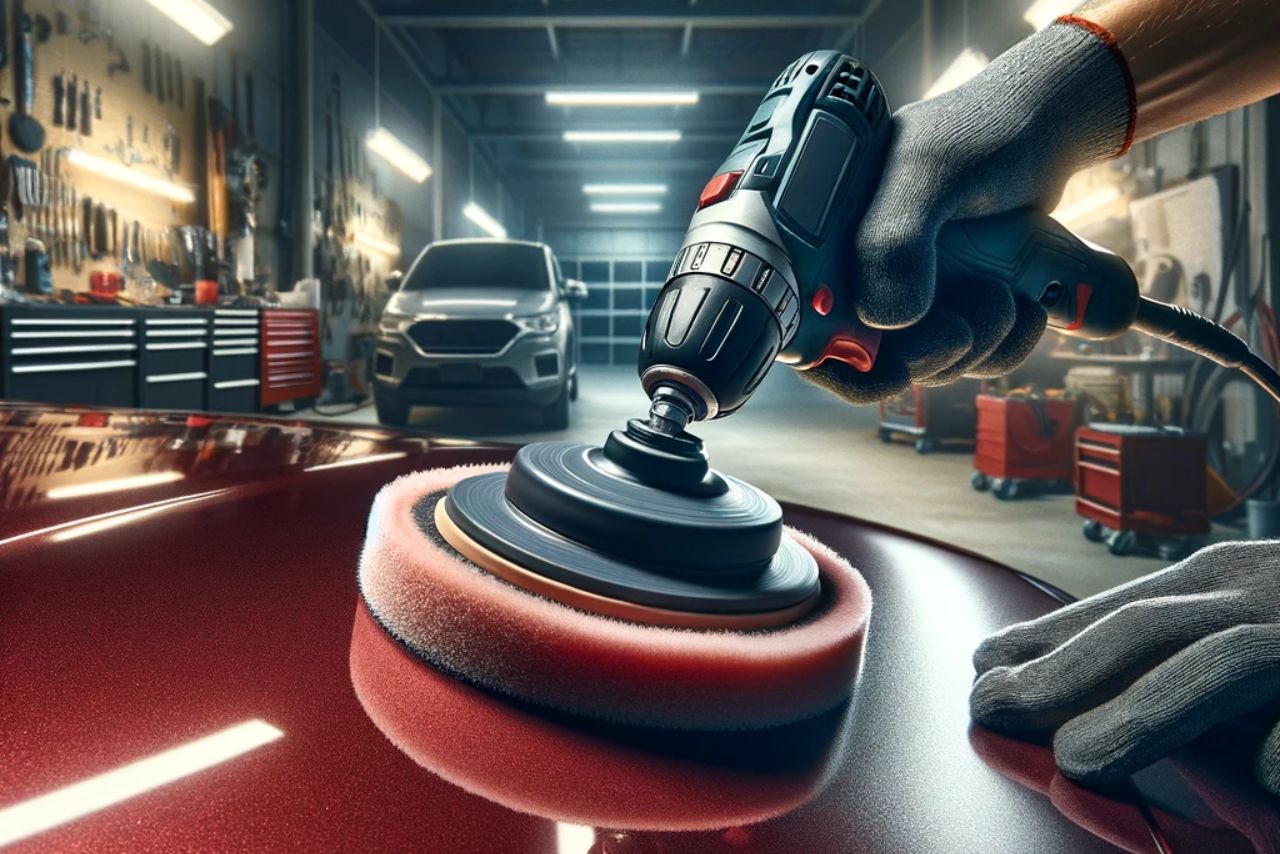As the saying goes, ‘if it ain’t broke, don’t fix it.’
But what if your older engine is showing signs of wear and tear, such as burning oil or decreased performance? You may be wondering if Is It Better To Use Thicker Oil In Older Engines?
Using thicker oil in older engines may seem like a simple fix, but it’s not always the best solution.
While thicker oil may provide better protection to an engine with worn components, it can also cause problems such as increased engine strain and reduced fuel efficiency.
In this article, we will explore the science behind engine wear and tear and the role of engine oil, as well as the different types of oil available and the risks and benefits of using thicker oil in older engines.
According to professional Yes, using thicker oil in older engines can be beneficial. Thicker oil provides better lubrication and helps compensate for wear in engine components, reducing friction and extending engine life.
Table of contents
Understanding Engine Wear and Tear:
You might notice that your engine is starting to show signs of wear and tear as it gets older, with parts grinding against each other like sandpaper on skin.
This is because the constant friction and heat generated by the engine’s moving parts can cause wear over time.
To prevent this from happening, it’s important to keep up with regular engine maintenance. This includes checking and changing the oil, replacing filters, and getting regular tune-ups.
Identifying signs of engine wear can help you catch potential problems early on.
Some common signs of engine wear include increased oil consumption, loss of power or acceleration, and unusual noises.
If you notice any of these signs, it’s important to take your vehicle to a mechanic for further inspection.
Using thicker oil may help reduce engine wear, but it’s not a cure-all solution. Regular maintenance and early detection of issues are key to keeping your engine running smoothly for years to come.
The Role of Engine Oil:
When it comes to engine maintenance, it’s crucial to understand the role of engine oil.
- Your engine oil serves three key purposes: lubrication, cooling, and cleaning.
- It lubricates the moving parts of your engine, reducing friction and wear and tear.
- It also helps to cool the engine by carrying heat away from the combustion chamber.
- Finally, it cleans the engine by removing dirt, debris, and contaminants that can clog up the system.
Lubrication:

If your engine is older, using thicker oil may be a good idea – but is it really the best option for lubrication? Engine lubrication is critical to the longevity and performance of your vehicle.
The importance of viscosity cannot be overstated. Viscosity refers to the thickness or resistance to flow of a fluid. In engine oil, viscosity affects how well the oil can lubricate and protect engine parts.
To determine the best oil viscosity for your engine, you need to consider several factors. One of the primary considerations is the operating temperature of your engine.
Different oil viscosities perform better in different temperature ranges. Another important factor to consider is the manufacturer’s recommendations for your specific make and model.
Using the wrong oil viscosity can lead to increased wear and tear on engine parts, reduced fuel efficiency, and even engine failure.
| Oil Viscosity | Temperature Range | Advantages |
|---|---|---|
| 5W-30 | -30°C to 35°C | Improved fuel economy, better cold weather performance |
| 10W-30 | -15°C to 40°C | Good all-season performance, suitable for most engines |
| 20W-50 | 10°C to 50°C | Best for high mileage engines or those operating in hot climates |
Using thicker oil in older engines may provide some benefits, but it is important to choose the right viscosity for your engine and operating conditions.
Consult your owner’s manual or a trusted mechanic to determine the best oil for your vehicle. Proper lubrication is essential for engine health and performance, so make sure you choose the right oil for your engine.
Cooling:
Picture your car cruising down the highway on a hot summer day, the cooling system working tirelessly to keep your engine at a safe temperature.
The benefits of proper cooling can’t be overstated, especially for older engines.
When engines run hot, it can cause a lot of damage, including warped cylinder heads, blown head gaskets, and even cracked engine blocks.
These issues can result in costly repairs that could have been easily avoided by ensuring proper cooling.
High temperatures can also impact the efficiency of your engine, causing it to work harder and decreasing fuel efficiency.
That’s why it’s important to ensure that your cooling system is in good working order and that you’re using the right type of coolant for your engine.
Regularly checking your coolant levels and ensuring that your radiator is free of debris can go a long way in preventing overheating issues.
So, if you have an older engine, don’t overlook the importance of proper cooling. It could save you a lot of money in the long run.
Cleaning:
Imagine driving your car through a muddy and dusty road, with grime and dirt building up on the exterior and under the hood. It’s essential to ensure regular cleaning to prevent damage and maintain its pristine appearance.
The same way your car’s exterior needs cleaning, your engine also requires periodic cleaning to remove the buildup of sludge and deposits. Regular cleaning of your engine not only helps it look better but also has several benefits.
Here are some benefits of cleaning your engine:
- Improved performance: Cleaning your engine helps remove the buildup of debris that can clog its various parts, improving the engine’s performance.
- Longer lifespan: Regular cleaning can prevent damage to your engine, increasing its lifespan and saving you from costly repairs.
- Better fuel efficiency: A clean engine can operate more efficiently, saving you money on fuel costs in the long run.
- Effectiveness of additives: Engine cleaning can enhance the effectiveness of additives such as oil and fuel treatments, making them more effective in keeping your engine running smoothly.
Keeping your engine clean has many benefits, and it’s essential to ensure you clean it regularly to prevent damage and keep it running efficiently. The use of effective cleaning agents and additives can also enhance the cleaning process, making it more effective.
The Different Types of Engine Oil:
Explore the different types of engine oil that are available to you and find the one that suits your vehicle best.
Viscosity:
One of the most important factors to consider when choosing engine oil is its viscosity.
Thicker oils have a higher viscosity and are better suited for older engines where there may be more wear and tear on the engine parts.
However, it’s important to note that using a thicker oil than recommended by the manufacturer can actually lead to decreased fuel efficiency and increased engine wear.
Synthetic or Conventional Oil:
- Product 1: Full synthetic 5W-20 engine oil made from natural gas, not crude, using Pennzoils patented gas-to-liquid PurePlus Technology
- Product 1: No other leading motor oil provides better wear protection for your engine (Based on Sequence IVA wear test using SAE 5W-30)
- Product 1: Helps protect engines from loss of power and provides better fuel economy—drive on average an extra 550 miles per year (versus a dirty engine)
- Product 1: Keeps pistons dramatically cleaner than required by the toughest industry standards (Based on ILSAC GF-6 and Sequence IIIH piston deposit test using SAE 5W-30)
- Product 2: Full synthetic 5W-20 engine oil made from made from natural gas, not crude, using Pennzoils patented gas-to-liquid PurePlus Technology
- Product 2: Provides better fuel economy—drive on average an extra 550 miles per year (versus a dirty engine)
- Product 2: Pennzoil Platinum 5W-20 keeps pistons up to 45% cleaner than the toughest industry standard (Based on Sequence IIIH results)
- Product 2: No other leading synthetic oil provides better wear protection from friction (Based on Sequence IVA wear test using SAE 5W-30)
Another factor to consider when choosing engine oil is whether to use synthetic or conventional oil.
Synthetic oil is chemically engineered to provide superior protection for your engine, while conventional oil is made from crude oil.
Synthetic oil is generally more expensive, but it offers better performance and longer-lasting protection.
- Longer oil life
- Meets or exceeds: API SG/SF/CC/CD, JASO MA and JASO MA-2, ACEA A3
- Lower oil temperatures
- Less noise, fewer leaks
Choosing the right oil for your vehicle is important because it can affect the longevity and performance of your engine.
Consult your owner’s manual or a trusted mechanic to determine the best type and viscosity of oil for your specific make and model.
Using Thicker Oil in Older Engines:

If you’re driving an older vehicle, you might want to consider opting for a more viscous type of engine lubricant to help keep those parts moving smoothly.
Thicker oils have a higher viscosity, which means they can better protect against engine wear and tear.
However, it’s important to note that thicker oils may not be suitable for all engines, and there are pros and cons to using them.
Thicker oils can provide better protection against metal-to-metal contact, reducing the likelihood of engine damage. They also tend to last longer than thinner oils, which can save you money on oil changes.
However, thicker oils can also be more difficult to pump through the engine, which can reduce fuel efficiency and overall performance.
It’s important to weigh the pros and cons carefully before deciding whether to use a thicker or thinner oil, and to consider the impact of oil viscosity on engine wear and tear.
| Pros of thicker oils | Cons of thicker oils |
|---|---|
| Better protection against engine wear | Reduced fuel efficiency |
| Longer-lasting | Reduced performance |
| May not be suitable for all engines |
The Risks of Using Thicker Oil:

If you’re considering using thicker oil in your older engine, it’s important to be aware of the potential risks that come with this decision.
One of the main drawbacks of using thicker oil is reduced fuel economy, as the engine has to work harder to pump the oil through the system.
Additionally, thicker oil can lead to increased oil consumption as well as reduced engine performance, which can ultimately result in costly repairs.
Reduced Fuel Economy:
You’ll notice a significant decrease in your gas mileage if you use thicker oil in your older engine.
While it may seem like a good idea to use thicker oil to compensate for wear and tear on the engine, it can actually have negative effects on your vehicle’s fuel economy.
The causes of reduced fuel economy when using thicker oil in older engines are twofold.
- First, thicker oil requires more energy to circulate through the engine, causing the engine to work harder and use more fuel.
- Second, thicker oil can increase friction within the engine, leading to more resistance and lower efficiency.
- The effects of reduced fuel economy can be felt in your wallet, as you’ll need to fill up more frequently, and in the environment, as your vehicle will be emitting more greenhouse gases.
- Therefore, it’s important to carefully consider the type of oil you use in your older engine and to consult with a professional mechanic to ensure you’re using the best option for your specific vehicle.
| Causes of Reduced Fuel Economy | Effects of Reduced Fuel Economy |
|---|---|
| Thicker oil requires more energy to circulate through the engine | Need to fill up more frequently |
| Thicker oil can increase friction within the engine | Increased greenhouse gas emissions |
| Dirty air filter restricts airflow to the engine | Decreased acceleration and power |
Increased Oil Consumption:
You may be surprised at how quickly your engine is drinking up all the precious liquid that keeps it running smoothly, leaving you feeling like you’re constantly refilling a bottomless tank.
This increased oil consumption is a common problem in older engines, and it can lead to reduced efficiency and potential damage.
Here are some reasons why your older engine might be guzzling oil at a faster rate:
- Worn Piston Rings: Over time, the piston rings in your engine can wear down, allowing oil to pass through and burn off in the combustion chamber.
- Leaking Gaskets: Leaks in the valve cover gasket or other areas can cause oil to escape from the engine and require regular top-offs.
- Engine Wear: As your engine ages, the metal components can wear down, causing gaps and spaces that allow oil to seep through.
If you notice that your oil level is dropping faster than normal, it’s important to address the problem promptly to avoid damage to your engine.
Consult with a mechanic to determine the cause of the increased oil consumption, and consider using a thicker oil to help reduce the rate of consumption.
Reduced Engine Performance:
Feeling like your car just isn’t running like it used to? It could be a sign of reduced engine performance. This can occur over time as various components wear down and lose efficiency.
In older engines, reduced engine performance can be caused by a number of factors. These include worn-out piston rings, damaged valve seats, and clogged fuel injectors.
As these components deteriorate, they can lead to decreased power output, poor fuel economy, and increased oil consumption.
One way to address reduced engine performance in older engines is through an engine rebuild. This process involves disassembling the engine, cleaning all components, and replacing any damaged or worn-out parts.
By doing so, the engine can be restored to its original performance level. This provides benefits such as increased power output, improved fuel economy, and reduced oil consumption.
While an engine rebuild can be costly, it’s often a worthwhile investment for those looking to keep their older vehicle running smoothly.
Is It Ok to Use 10w40 Instead of 5 W-30?
Using 10W-40 instead of 5W-30 can be acceptable in certain circumstances. The “10W” indicates the oil’s viscosity at cold temperatures, while the “40” represents its viscosity at high temperatures.
5W-30 is thinner at low temperatures, allowing for easier cold starts, while 10W-40 provides better protection at higher temperatures.
If your engine has high mileage or experiences significant oil consumption, using 10W-40 may help reduce leaks and provide better lubrication.
Should You Use Higher Viscosity Oil in Older Engines?
Using higher viscosity oil in older engines can be beneficial in some cases. Older engines tend to have more wear and tear, which can lead to increased oil consumption and lower oil pressure.
Using a higher viscosity oil can help to reduce oil consumption and increase oil pressure, which can help to prolong the life of the engine.
However, it is important to note that using a higher viscosity oil may not always be the best option.
If the engine is designed to use a specific viscosity oil, using a higher viscosity oil can cause problems such as reduced fuel economy, increased engine wear, and reduced performance.
Alternatives to Thicker Oil:
If you’re concerned about the risks of using thicker oil in your older engine, there are a few alternatives to consider.
- Dissolves and clean fuel deposits and sticky residues from gas and diesel fuel injectors, carburetors, and combustion chambers
- Package dimensions :5.0 L x5.0 W x8.25 H
- Does NOT have harsh detergent or abrasive chemicals that can harm your engine
- Country of origin :United States
- First, you could try using engine additives that can improve performance and protect against wear and tear.
- Additionally, regular oil changes are essential for maintaining the health of your engine, as they ensure that the oil is clean and effective.
- Finally, proper engine maintenance can go a long way in preventing problems and prolonging the life of your vehicle.
By taking these steps, you can protect your engine without resorting to thicker oil.
Engine Additives:
Adding engine additives can be a game-changer for the performance of an older engine, as they can help reduce wear and tear and extend the engine’s lifespan.
Engine additives are chemicals that are mixed with engine oil to improve its performance.
They work by reducing friction between engine parts, which can help reduce wear and tear.
Some additives also help to clean the engine by removing deposits and sludge that can build up over time.
There are different types of engine additives available in the market. The table below highlights some of the common ones and their effectiveness in reducing wear and tear and cleaning the engine.
It is important to note that not all additives are suitable for all engines, and it is best to consult with a mechanic or refer to the manufacturer’s guidelines before using them.
| Additive | Effectiveness in Reducing Wear and Tear | Effectiveness in Cleaning Engine |
|---|---|---|
| Friction Modifiers | High | Low |
| Detergents | Low | High |
| Dispersants | Low | High |
| Anti-wear Agents | High | Low |
| Viscosity Improvers | High | Low |
Engine additives can be an effective way to improve the performance of older engines.
They can reduce wear and tear, clean the engine, and extend its lifespan. However, it is important to choose the right additives for your engine and follow the manufacturer’s guidelines.
With proper maintenance and the use of engine additives, you can keep your older engine running smoothly for years to come.
Regular Oil Changes:
One easy way to keep your car running smoothly is by getting regular oil changes.
It’s important to change your engine oil every 3,000 miles or every three months, whichever comes first. Neglecting this routine maintenance can cause engine damage and reduce fuel efficiency.
By regularly changing your oil, you can prevent engine wear and tear, reduce harmful emissions, and extend the life of your engine.
Another way to improve the performance of your engine is by using synthetic oil.
Synthetic oil has several benefits over traditional mineral oil, including better protection against engine wear, improved fuel efficiency, and longer intervals between oil changes.
Synthetic oil also performs well in extreme temperatures, making it ideal for high-performance engines.
While it may be more expensive than regular oil, the benefits of synthetic oil can save you money in the long run by reducing engine wear and increasing fuel efficiency.
Engine Maintenance:
Maintaining your engine is crucial for optimal performance and longevity. Regular oil changes are just one aspect of engine maintenance that will help you get the most out of your vehicle.
However, there are other DIY maintenance tasks you can perform to ensure your engine lasts as long as possible.
One key factor in engine longevity is using the correct oil viscosity. While it may seem counterintuitive, thicker oil is not necessarily better for older engines. In fact, using oil that is too thick can actually increase wear and tear on your engine.
Instead, it’s important to use the oil viscosity recommended by your vehicle manufacturer, which can be found in your owner’s manual.
Consistently using the correct oil viscosity, along with other DIY maintenance tasks such as keeping your engine clean and checking your fluids regularly, can help extend the life of your engine.
Consult with a Professional:
You absolutely need to consult with a professional before making any decisions about using thicker oil in your older engine, otherwise you could end up causing serious damage.
A professional mechanic or technician has the knowledge and experience to determine whether a thicker oil is appropriate for your engine based on its condition, age, and usage.
They can also recommend the correct viscosity and type of oil that would be best suited for your engine, as well as provide guidance on how often to change the oil.
Here are four reasons why it’s important to seek consultation from a professional before using thicker oil in an older engine:
-
Using the wrong oil viscosity can cause excessive engine wear and tear, leading to costly repairs.
-
Thicker oil can reduce fuel efficiency, resulting in higher costs at the gas pump.
-
Using the wrong oil type can lead to engine deposits and sludge buildup, which can cause engine damage over time.
-
Overfilling the engine with thicker oil can cause oil foaming, which can lead to oil starvation and engine failure.
Consulting with a professional before using thicker oil in your older engine is essential to prevent engine damage and costly repairs.
By seeking professional advice, you can ensure that your engine is properly maintained and running smoothly.
Don’t risk damaging your engine by making uninformed decisions about oil viscosity and type – trust the experts to provide you with the guidance you need.
Factors to Consider:
When it comes to choosing the right oil for your older engine, there are several factors that you need to consider.
- First and foremost, the age of your engine can play a significant role in determining the type of oil you should use.
- Additionally, the climate and driving conditions in which you operate your vehicle can also impact your oil choices.
- Finally, it’s essential to pay attention to the manufacturer’s recommendations to ensure you’re using the right oil for your engine.
By taking these factors into account, you can make an informed decision about which oil is best for your older engine.
Age of the Engine:
As engines age, they may benefit from using thicker oil for better lubrication and protection.
This is because older engines tend to have worn out parts that require more lubrication than newer ones. Thicker oil can help fill in the gaps and protect the engine from wear and tear.
However, before switching to a thicker oil, it’s important to consider the age of the engine and other factors that may affect its performance.
When it comes to the age of the engine, it’s important to note that older engines may have more wear and tear than newer ones. This is why regular maintenance is crucial in keeping the engine running smoothly.
Signs of engine wear and tear include oil leaks, low oil pressure, and engine knocking.
If you notice any of these signs, it may be time to switch to a thicker oil to better protect the engine. However, it’s important to consult with a mechanic before making any changes to your engine’s oil.
Climate and Driving Conditions:
The climate and driving conditions play a crucial role in determining the right type of oil for your engine.
Your driving habits can influence the oil’s viscosity and performance. If you frequently drive in extreme temperatures or heavy traffic, your engine may require a thicker oil to maintain a stable oil pressure and prevent wear and tear.
Environmental factors, such as humidity and altitude, can also affect the oil’s performance. If you live in a humid area, the oil may be more prone to oxidation and degradation, which can lead to engine damage.
Similarly, if you drive in high altitudes, your engine may require a thinner oil to maintain proper lubrication in the thinner air.
It’s important to consider the climate and driving conditions when choosing the right oil for your engine to ensure optimal performance and longevity.
Manufacturer Recommendations:
Before you start searching for the perfect oil for your engine, it’s essential to check the manufacturer’s recommendations.
These recommendations are based on extensive testing and research conducted by the manufacturer to ensure that your engine runs at its best.
Using the recommended oil will help to prolong the life of your engine and keep it running smoothly.
Here are four things to keep in mind when considering the manufacturer’s recommendations:
- Manufacturer recommendations are based on the specific design and requirements of your engine. Using the wrong type of oil could lead to reduced performance, increased wear and tear, and potentially even engine damage.
- Aftermarket modifications may require a different type of oil than what is recommended by the manufacturer. If you’ve made any modifications to your engine, it’s important to consult with a professional to determine if a different type of oil is necessary.
- Just because a certain type of oil works well in another engine doesn’t mean it will work well in yours. Every engine is different, and using the wrong oil can lead to serious problems.
- If you’re unsure about which oil to use, consult the owner’s manual or contact the manufacturer directly. They’ll be able to provide you with the information you need to make an informed decision.
Sticking to the manufacturer’s recommendations when it comes to oil is crucial for the health and longevity of your engine. Don’t take any chances with aftermarket modifications or assumptions about what type of oil will work best. Take the time to do your research and make an informed decision to keep your engine running smoothly for years to come.
Testing and Monitoring Engine Performance:
When it comes to testing and monitoring engine performance, there are several key points to keep in mind.
Regular maintenance checks are crucial for ensuring that your engine is running smoothly and efficiently.
Oil analysis can help you detect potential problems early on, while monitoring engine performance allows you to track changes over time.
By keeping these factors in mind and making an informed decision, you can ensure that your engine is operating at its best.
Regular Maintenance Checks:
To ensure your older engine runs smoothly, it’s important to regularly check its maintenance needs. Here are some things you should keep in mind when performing regular maintenance checks:
-
Importance of early detection: Regular maintenance checks can help you detect any issues early on, before they turn into bigger, more expensive problems. For example, checking the oil level and quality regularly can help you detect any leaks or contamination early, before they cause damage to the engine.
-
Scheduled maintenance routine: Following a scheduled maintenance routine can help you keep your engine in good condition and extend its lifespan. This routine should include tasks such as changing the oil and oil filter, checking the air filter, inspecting the spark plugs, and checking the coolant level and quality.
By performing these regular maintenance checks and following a scheduled maintenance routine, you can help ensure that your older engine runs smoothly and avoid costly repairs down the line.
Don’t neglect the maintenance needs of your engine, and it’ll reward you with reliable performance for years to come.
Oil Analysis:
Now that you understand the significance of regular maintenance checks for your engine, it’s time to delve deeper into one of the most crucial aspects of engine maintenance: oil analysis.
By performing regular oil analysis, you can gain valuable insights into the condition of your engine and ensure that it’s running at its best.
The benefits of oil analysis are numerous.
Firstly, it’s an effective way to detect any potential problems with your engine before they become major issues.
By identifying any contaminants or abnormal wear patterns in your oil, you can nip problems in the bud before they cause serious damage to your engine.
Additionally, oil analysis can help you extend the lifespan of your engine by ensuring that it’s always running at peak performance.
So, if you want to keep your engine running smoothly and avoid costly repairs down the line, it’s important to prioritize the regular testing and analysis of your engine oil.
Monitoring Engine Performance:
Unfortunately, you probably won’t notice anything is wrong until it’s too late if you neglect monitoring your engine performance.
That’s why it’s crucial to keep track of your engine’s performance and address any issues as soon as possible. By doing this, you can avoid costly repairs that could have been prevented with timely maintenance.
The importance of monitoring your engine’s performance can’t be overstated. Here are some benefits of preventative maintenance that come with regular monitoring:
-
Improved fuel efficiency: Regular monitoring can help you identify any issues that may be causing your engine to work harder than it needs to. By addressing these issues, you can improve your engine’s fuel efficiency and save money on gas.
-
Extended engine life: Regular maintenance can help your engine run smoothly for longer. This means you can avoid the cost of a premature engine replacement and get more use out of your vehicle.
-
Enhanced safety: A poorly performing engine can be dangerous, especially when driving at high speeds. By monitoring your engine’s performance and addressing any issues, you can help ensure your safety on the road.
Recap of Key Points:
Don’t forget the importance of regular maintenance and monitoring of your engine’s performance – it could mean the difference between a safe and reliable ride or a costly and dangerous breakdown.
Regular maintenance includes checking the oil level and quality, as well as other vital components such as the air filter, spark plugs, and coolant levels. Ignoring these routine checks can lead to engine damage and decreased performance.
Oil quality is of utmost importance when it comes to engine maintenance.
Using the correct viscosity and type of oil can greatly benefit older engines. Thicker oil may be recommended for older engines with high mileage, as it can help prevent oil leaks and reduce engine wear.
However, it’s important to consult your owner’s manual or a professional mechanic before making any changes to your oil type or viscosity.
Regular oil changes, regardless of the type used, are also crucial in maintaining engine performance and longevity.
Making an Informed Decision:
It’s essential to educate yourself and seek professional advice before making any decisions about your engine’s maintenance and oil choices.
When it comes to using thicker oil in older engines, there are both pros and cons to consider.
Thicker oil can provide better protection to engine parts, particularly in high mileage engines that may have worn out components or leaks. It can also help improve oil pressure and reduce oil consumption.
However, using thicker oil can also lead to decreased fuel economy and reduced engine performance.
Thicker oil may not flow as easily through the engine, which can lead to increased engine wear and tear. Additionally, some experts advise against using thicker oil in modern engines that require thinner oils for optimal performance.
Ultimately, the decision of whether to use thicker oil in an older engine should be based on careful consideration of the engine’s condition and manufacturer recommendations, as well as seeking the advice of a trusted mechanic.
Frequently Asked Questions:
Can using thicker oil in an older engine cause any damage to the engine?
Using thicker oil in an older engine can have both pros and cons. Thicker oil can provide better protection for worn engine parts, but it can also reduce fuel efficiency and increase engine wear. The effects of viscosity on engine performance should be carefully considered before making a decision.
Is it necessary to change the type of oil used in an older engine as it ages?
As your engine ages, it’s important to consider changing the type of oil used. Additives can benefit an older engine, but the impact of temperature must also be considered. One interesting statistic shows that 20% of engine failures are due to poor lubrication.
Are there any benefits to using thinner oil in an older engine?
Using thinner oil in an older engine may provide benefits such as improved fuel efficiency and easier cold weather startups. However, drawbacks include increased oil consumption and potential engine wear due to decreased oil film thickness.
How often should the oil be changed in an older engine?
Although it may vary depending on your particular engine and driving habits, frequency recommendations for older engines typically range from 3,000 to 5,000 miles. Synthetic oil may provide better protection, but conventional oil can still be effective.
What factors should be considered when choosing an oil for an older engine?
When choosing oil for an older engine, consider the oil viscosity requirements of the engine, as well as synthetic vs conventional oils. Consult the owner’s manual or a trusted mechanic for specific recommendations.
Conclusion and final thoughts 💭
Congratulations! You’ve just learned about the pros and cons of using thicker oil in older engines.
By now, you have an idea of how engine wear and tear can affect your vehicle’s performance and the role of engine oil in mitigating its effects.
You also know that using thicker oil can be a solution to a worn-out engine, but it comes with risks that you should consider.
However, don’t be disheartened. There are alternatives to thicker oil that you can explore with the help of a professional.
Remember that testing and monitoring your engine’s performance is crucial to ensure that you’re making the right choices for your vehicle.
As the saying goes, “prevention is better than cure.”By taking proactive steps to maintain your engine’s health, you can avoid costly repairs and extend its lifespan.
So, go ahead and make an informed decision that suits your needs and budget.
Latest Posts:
- Can WD-40 Remove Scratches on Cars? (Hint: Yes, but…)
- Can You Use a Drill to Polish Your Car? (We Tried it Out!)
- Should You Cover Car Scratches With Stickers? (REVEALED!)
- Buick Service Stabilitrak: (Causes & 100% Guaranteed Fix!)
- Common Holden Trax Problems (Causes & 100% Proven Fixes!)
- Jeep Commander Transmission Over Temp: (Guaranteed Fix!)












Leave a Reply